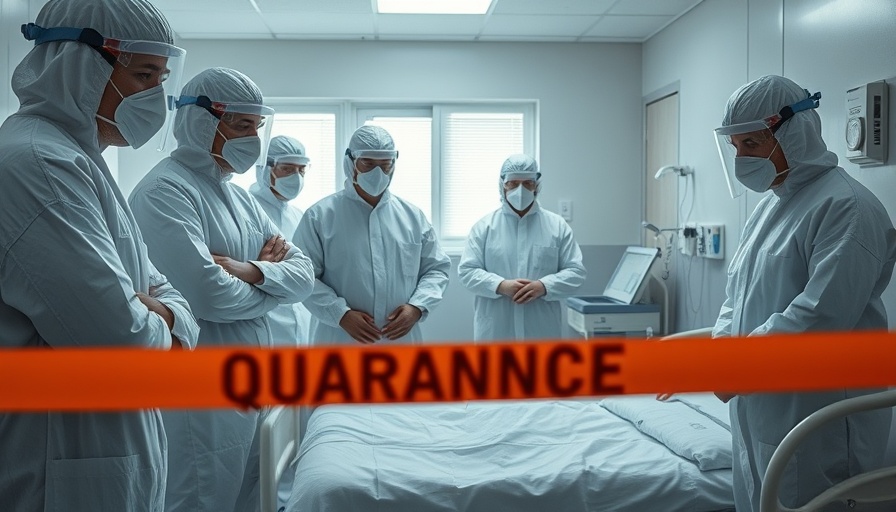
The Current Measles Outbreak: A Call to Action
In the United States, a significant health concern has emerged with the measles outbreak affecting 1,267 individuals across 38 states this year. The Centers for Disease Control and Prevention (CDC) reports that 27 outbreaks have occurred so far in 2025, with the majority (88 percent) of confirmed cases linked to these outbreaks. Tragically, among these numbers, three deaths have been confirmed, including that of a child, emphasizing the dire need for vigilant infection control measures in healthcare settings.
Understanding the Importance of Infection Control
Healthcare facility managers play a crucial role in preventing the spread of infections like measles. Proper infection control strategies can save lives by significantly lowering the risk of airborne diseases spreading within healthcare environments. As the CDC outlines, establishing airborne infection isolation rooms (AIIRs) is critical. These rooms must maintain a minimum of six air changes per hour to effectively filter and exhaust contaminated air, and daily pressure checks are essential to ensure safety.
Best Practices for Handling Measles Cases
When treating patients with measles, swift action is vital. Healthcare staff must utilize triage areas and AIIRs to identify and isolate infected individuals quickly. Providing symptomatic patients with masks is necessary to prevent further transmission. Additionally, it’s important to display clear signs about hygiene practices and establish accessible hand sanitizers and masks. These simple actions can create a protective atmosphere within medical facilities, significantly reducing the likelihood of an outbreak.
Temporary Solutions to Inadequate Facilities
Even when AIIR standards aren't fully met, healthcare officials must find ways to manage infected patients effectively. Utilizing portable solutions like HEPA filters or exhaust fans can create temporary negative pressure environments, which help in controlling airborne pathogens. Once a patient vacates a room, maintaining an empty environment for up to two hours allows air quality to improve before the space is reused.
Training Staff: A Vital Component of Infection Control
The importance of training staff cannot be overstated. Every healthcare worker should be trained and cleared for proper respirator use, including N95 or powered air-purifying respirators. Equipping staff with the knowledge and tools to use personal protective equipment (PPE) correctly is essential in preventing measles transmission. Regular training sessions incorporating real-life scenarios can empower healthcare workers, not only to protect themselves but also to maintain a safe environment for patients and visitors.
Emphasizing the Value of Prevention
The current measles outbreak serves as a reminder of the essential role infectious disease prevention plays in healthcare. By prioritizing infection control protocols, healthcare facilities can effectively manage outbreaks and protect both staff and patients. As these practices become a norm, we can foster safer environments that prioritize the health and well-being of everyone involved.
 Add Row
Add Row  Add
Add 


 Add Row
Add Row  Add
Add 

Write A Comment